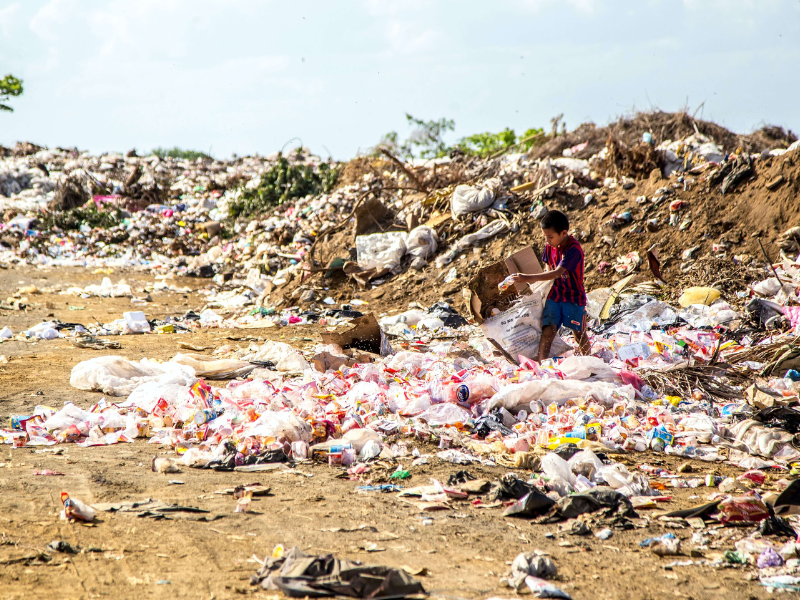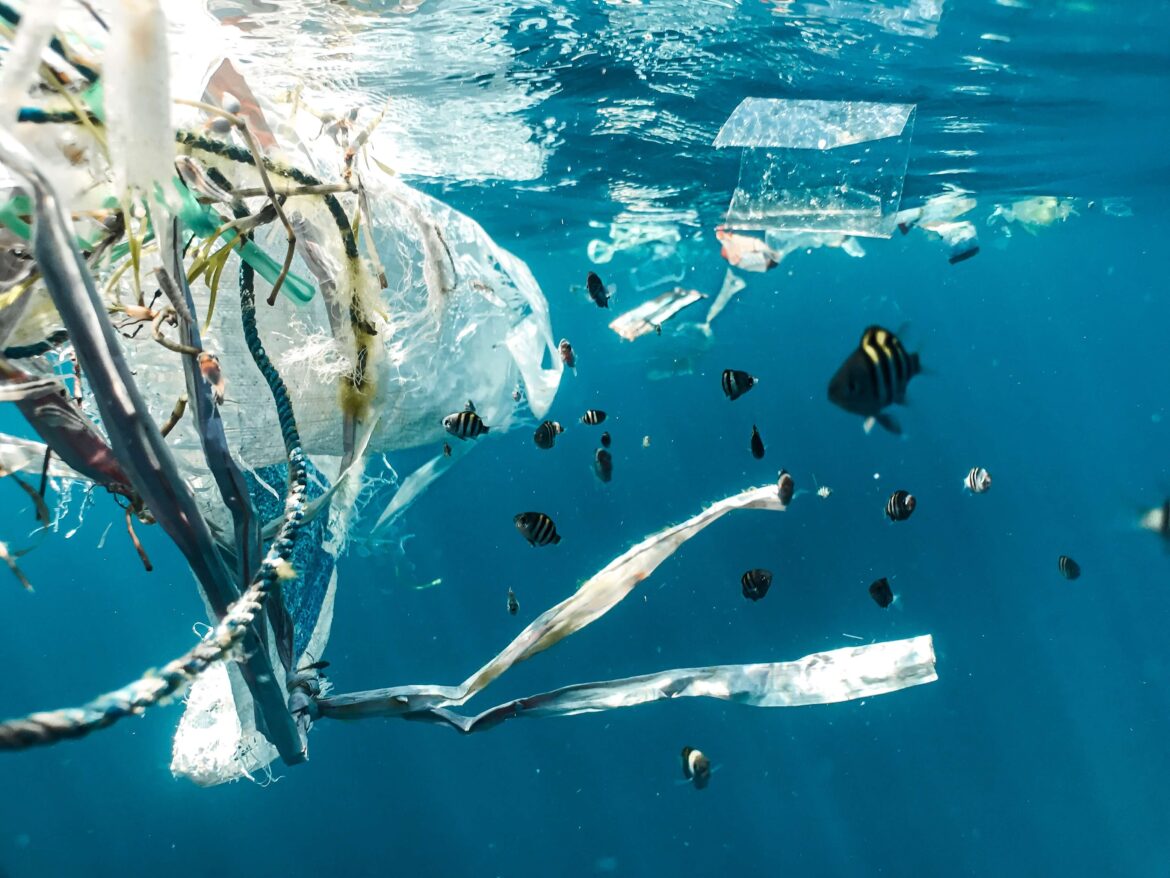Today is World Environment Day: Explore 10 Ways to Take Individual Actions for a More Sustainable Future

World Environment Day aims to raise awareness and inspire action for the protection and preservation of our planet. This Day encourages individuals, communities, and governments to take proactive steps toward healing and safeguarding our environment and planet.
World Environment Day has been led by the United Nations Environment Programme (UNEP) since 1973 and provides an opportunity to reflect on the state of our environment and advocate for positive change. The day encourages all stakeholders, from governments, businesses, education systems, NGOs, and individuals, to take responsibility for their actions. The day should remind us that we all have a role to play in conserving nature.
The Fight Against Plastic Pollution

This year, World Environment Day focuses on the fight against plastic pollution. In this article, we outline some steps on how each one of us can contribute to building a more sustainable future by reducing our plastic consumption.
The production of plastic primarily relies on oil and gas, both categorized as fossil fuels. As we increase plastic production, we simultaneously escalate the demand for fossil fuels, thus exacerbating the climate crisis. Also, plastic products create greenhouse gas emissions across their whole lifecycle.
Did you know?

- Global plastic production exceeds 400 million tonnes per year, with half of it designed for single-use purposes. Shockingly, people recycle less than 10 percent of this plastic.
- Annually, an estimated 19-23 million tonnes of plastic finds its way into lakes, rivers, and seas, which is equivalent to the weight of 2,200 Eiffel Towers. Moreover, 11 million tonnes of plastic waste enter our oceans each year, and this amount could triple by 2040.
- The impact of plastic pollution affects more than 800 marine and coastal species through ingestion, entanglement, and other hazardous consequences.
- Microplastics, which are minuscule plastic particles measuring up to 5mm in diameter, contaminate our food, water, and air. On average, each person consumes over 50,000 plastic particles annually, and the number increases significantly when considering inhalation.
- Surprisingly, even the most remote environments on Earth, such as the Mariana Trench and Mount Everest, contain tiny fragments of plastic originating from human activities situated miles away.
- Estimates suggest that we can actively achieve remarkable outcomes by transitioning to a circular economy. This shift has the potential to decrease plastic entering oceans by over 80 percent by 2040, reduce greenhouse gas emissions by 25 percent, and generate approximately 700,000 additional jobs, particularly in the global south.
Source: https://www.un.org/en/observances/environment-day
Taking Action and Making Changes

These disturbing facts underscore the importance of World Environment Day in mobilizing transformative action from every corner of the world. As plastic pollution is a global problem, solving it requires a global approach. With available science and solutions to tackle the plastic problems, governments, companies, and other stakeholders must scale up and speed up actions to solve the crisis.
While large-scale efforts and policy changes are essential and fundamental for the needed change, individual actions also play a crucial role in protecting the environment. Every stakeholder, from individuals, NGOs, organizations, governments, businesses, and more, has a role to play. By taking action both individually and collectively, we can contribute to building a more sustainable future. While every one of us belongs to different stakeholder groups, we can all make individual directions and changes. Individual actions are essential in underpinning the systemic change to transition to a less plastic-dependent world and economy. Each of us can use our voices and choices to drive change.
10 Ways To Fight Plastic Pollution – Individual Actions for a More Sustainable Future

Here are some of the things you can do:
- Speak up and make sure your voice is heard. If you see a company using unnecessary plastic (such as single-use covering fruit at a grocery store), contact them directly. Let politicians know that you care about the issue and that they should, too, if they want your vote. Talk to or contact local representatives about the issue.
- Share solutions when you find them. If you come across an innovative solution or hear about a start-up tackling plastic pollution, tell your friends and promote the initiative on social media.
- Volunteer with local or global plastic clean-up groups. Attend organized beach clean-ups or do your own when you have the chance.
- Donate to charities that are working to solve the plastic pollution crisis.
- Shift your behavior to avoid single-use plastic whenever possible. Choose and invest in reusable alternatives for water bottles, shopping bags, and coffee cups to minimize the consumption of disposable plastic items. Say no to plastic straws.
- Choose Eco-Friendly Packaging: Prioritize products with minimal packaging or those packaged in more environmentally friendly materials like cardboard or glass instead of plastic.
- Purchase items with extended warranties that can be repaired and ensure you find a reliable recycler for when the product reaches its end of life.
- Practice Proper Recycling: Familiarize yourself with local recycling guidelines and ensure that you correctly sort and dispose of plastic waste in designated recycling bins.
- Choose Plastic-Free Personal Care Products, and look for toothbrushes, toothpaste, shampoo, soap, and more made from or wrapped in alternatives like bamboo, metal, or glass containers.
- Consider starting composting food scraps and other organic waste instead of throwing them in the trash. By composting, you not only divert waste from landfills but also reduce the need for plastic garbage bags. Use a compost bin or create a compost pile in your backyard to turn organic waste into nutrient-rich soil for gardening.
A reminder
World Environment Day is a reminder for all of us of our responsibility to protect and restore the ecosystems that sustain us. As plastic pollution poses a severe hazard to our environment and wildlife and endangers numerous species, reducing our plastic consumption plays a significant role. Fortunately, each of us possesses the power to make active choices and reduce our consumption. Every action counts in the fight against plastic pollution.
EcoHotels.com X Plastic Exchange Movement Bali

Did you know that for every booking made with EcoHotels.com, we donate rice to the Plastic-Rice Exchange Movement?
The Plastic Exchange Bali Movement was born as a response to the trash emergency in Bali. Plastic Exchange works by hosting Plastic-Rice Exchanges in different communities in Bali. People actively collect and bring garbage to weigh and sort, and they receive a slip in return. The slip can be exchanged for a quantity of rice based on the type and amount of garbage they collect. The collected garbage is then transported to a recycling facility in Bali.
The donation of rice means that for every booking made with us, 1kg of plastic is collected!
Restoring Balance

As of now, 50,000 kg of plastic has been collected. Moreover, 55,000 kg of rice has been distributed throughout 200 Balinese villages. The movement, Plastic Exchange, is about restoring, balancing, and empowering communities to change their waste behavior through dignity-based exchange systems that result in a cleaner, healthier environment. The community-driven movement continues to grow through education, action, and commitment to the environment, economic prosperity, and personal responsibility. Read more about the Plastic Exchange Movement in Bali here.
All actions count, whether small or big!
The fight against plastic pollution requires collective and individual effort. Every step and action matters toward reducing plastic production, waste, protecting marine life, and preserving our ecosystems.
By recognizing the significance of all actions, we empower ourselves and inspire others to join the cause. Together, we can create a ripple effect, eliminating plastic pollution and ensuring a better future. Remember, every action counts, and even smaller efforts make a difference.
